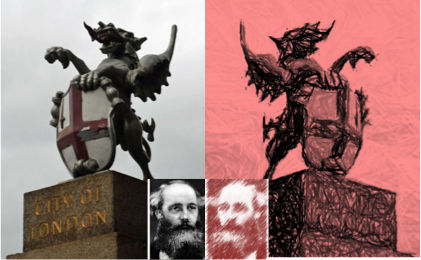Speaker
Antonio Figueiredo
(CFTP / IST - U. Lisbon)
Description
$\require{cancel}$
$\def\SUSY{\text{SUSY}}$
$\def\nSUSY{\cancel{\text{SUSY}}}$
$\def\Msoft{m_\text{soft}}$
$\def\nSUSYEWSB{\nSUSY_{\text{EWSB}}}$
$\def\nSUSYEWS{{\nSUSY}_{\text{EWS}}}$
Radiatively generated neutrino masses ($m_\nu$) are proportional to supersymmetry (SUSY) breaking, as a result of the SUSY non-renormalisation theorem. In this work, we investigate the space of SUSY radiative seesaw models with regard to their dependence on SUSY breaking ($\require{cancel}\cancel{\text{SUSY}}$). In addition to contributions from sources of $\nSUSY$ that are involved in electroweak symmetry breaking ($\nSUSYEWSB$ contributions), and which are manifest from $\langle F^\dagger_H \rangle = \mu \langle \bar H \rangle \neq 0$ and $\langle D \rangle = g \sum_H \langle H^\dagger \otimes_H H \rangle \neq 0$, radiatively generated $m_\nu$ can also receive contributions from $\nSUSY$ sources that are unrelated to EWSB ($\nSUSYEWS$ contributions). We point out that recent literature overlooks pure-$\nSUSYEWSB$ contributions ($\propto \mu / M$) that can arise at the same order of perturbation theory as the leading order contribution from $\nSUSYEWS$.
We show that there exist realistic radiative seesaw models in which the leading order contribution to $m_\nu$ is proportional to $\nSUSYEWS$. To our knowledge no model with such a feature exists in the literature. We give a complete description of the simplest model-topologies and their leading dependence on $\nSUSY$. We show that in one-loop realisations $L L H H$ operators are suppressed by at least $\mu \, \Msoft / M^3$ or $\Msoft^2 / M^3$. We construct a model example based on a one-loop type-II seesaw. An interesting aspect of these models lies in the fact that the scale of soft-$\nSUSY$ effects generating the leading order $m_\nu$ can be quite small without conflicting with lower limits on the mass of new particles.
Author
Antonio Figueiredo
(CFTP / IST - U. Lisbon)
